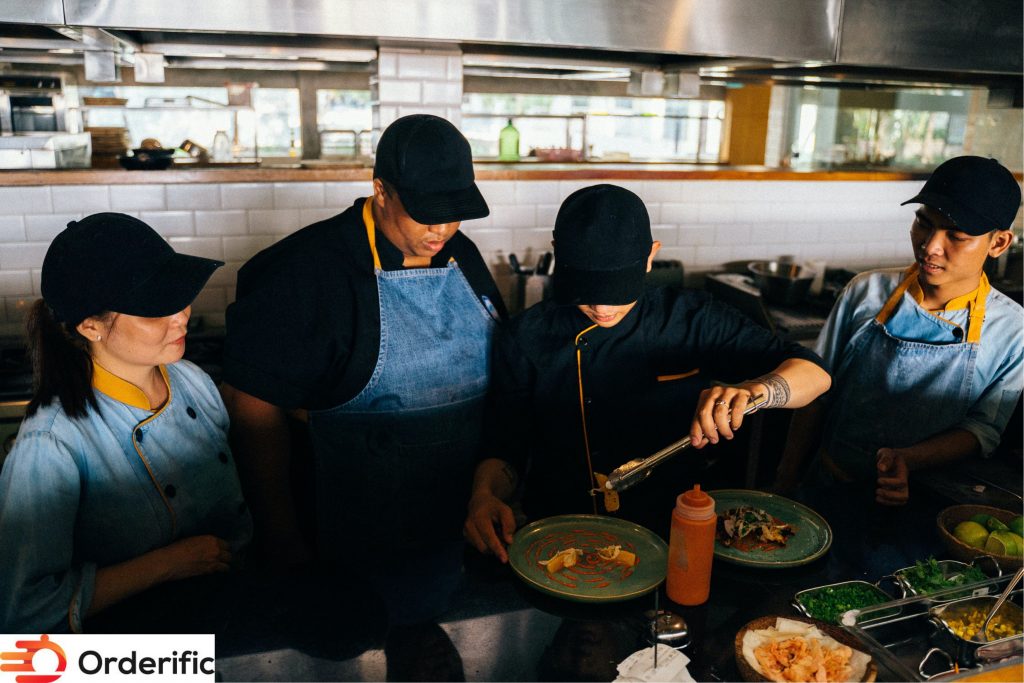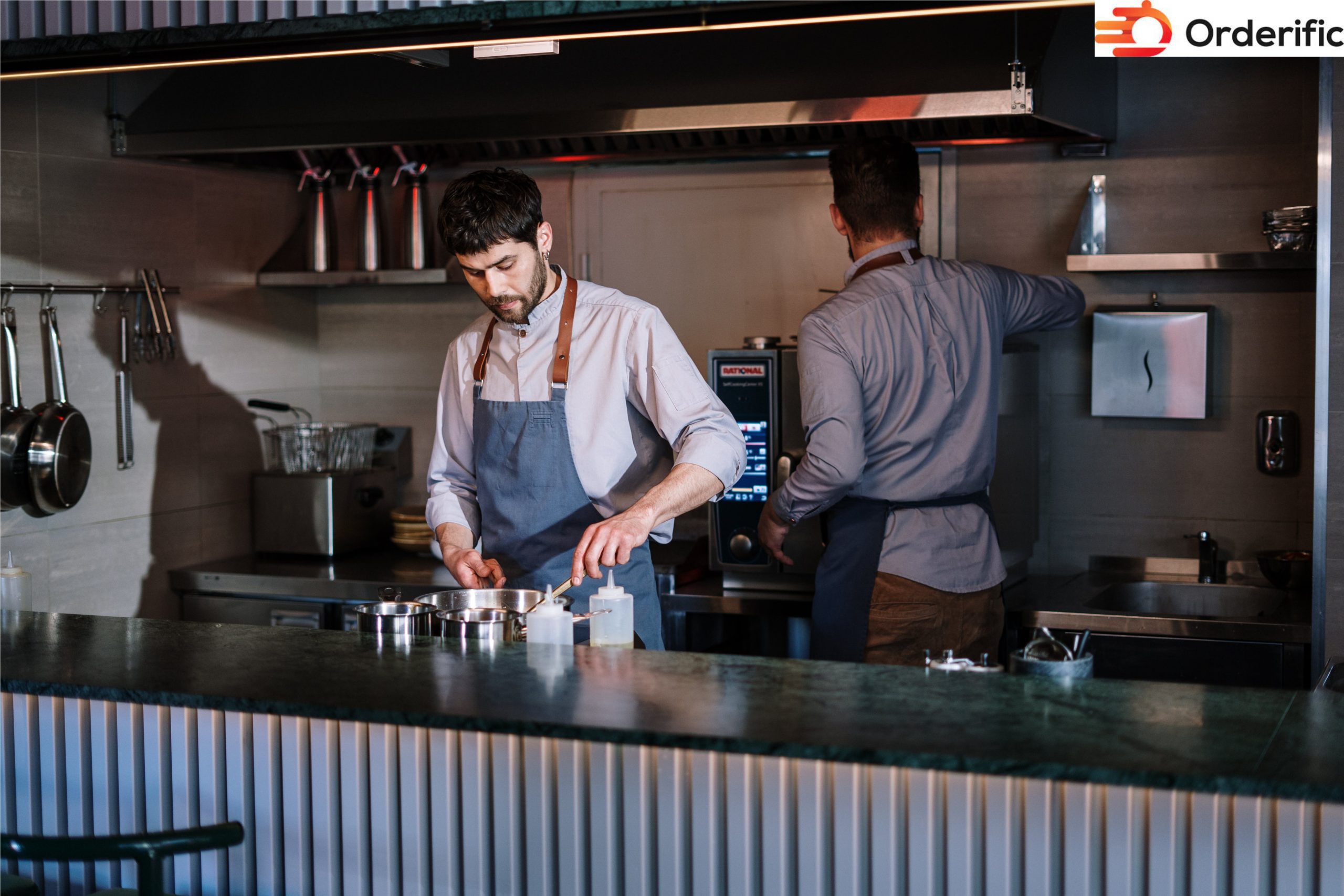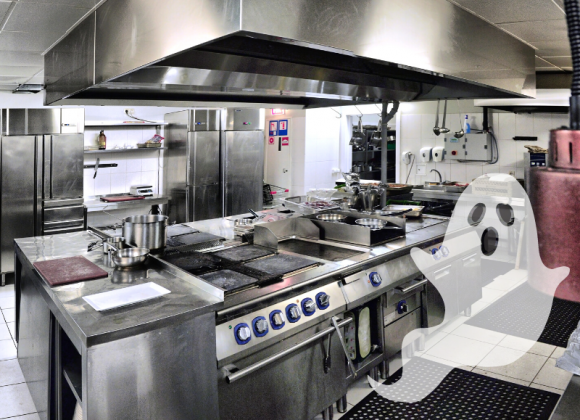Introduction
A sous chef holds a crucial position in the kitchen hierarchy and is often considered the right-hand to the executive chef. This job description uncovers the multifaceted role of a sous chef, shedding light on the blend of culinary arts, kitchen operations, and leadership skills required for this position. Whether it’s skillfully preparing food, mentoring junior chefs, or managing kitchen staff, the role demands a broad array of competencies. Sous chefs are responsible for ensuring food safety, overseeing food preparation, and developing innovative dishes. Their experience, honed through years in the professional kitchen, is vital to the smooth operation of the kitchen. Stay with us as we delve into the exciting world of the sous chef.
How To Write A Sous Chef Job Description (Duties, Responsibilities)

List Of Duties For The Job
In crafting the ideal sous chef job description, it’s important to clearly outline the myriad of tasks involved. As the executive chef’s right hand, the sous chef’s role encompasses a broad range of duties, such as supervising the kitchen staff, maintaining food safety, and overseeing food preparation. The sous chef’s expertise, forged in the heat of the professional kitchen, is critical to efficient kitchen operations and the creation of exquisite dishes.
An exceptional sous chef possesses a mastery of culinary arts, showcasing their skill through innovative cooking techniques and the creation of dishes that delight the palate. They’re often tasked with mentoring junior sous chefs and line cooks, fostering a nurturing environment that encourages growth and skill development.
While the head chef typically commands the kitchen, the sous chef’s experience and leadership are pivotal to the team’s success. They efficiently manage kitchen employees, ensuring smooth operations and adherence to high culinary standards. Whether it’s instructing a junior sous chef on food preparation techniques or collaborating with the executive chef on new dishes, the sous chef’s role is integral to the kitchen’s triumph.
Supervise The Kitchen Team
One of the critical duties of a sous chef is supervising the kitchen team. This involves providing guidance, resolving conflicts, and ensuring that everyone works harmoniously. Their responsibility extends to training new members, nurturing their culinary skills, and instilling a passion for food and the culinary arts. The sous chef’s leadership contributes to the team’s overall productivity and the kitchen’s operational efficiency. Their role also includes enforcing hygiene standards and ensuring adherence to food safety regulations. The sous chef’s role is indeed pivotal to the team’s success, as they bridge the gap between the kitchen staff and the executive chef, contributing significantly to the creation of delectable dishes and a successful dining experience.
Develop Recipes And Menus With The Head Chef
An integral aspect of a sous chef’s role is collaborating with the head chef in recipe development and menu design. Their culinary expertise and creativity are essential for introducing new, exciting dishes that cater to a diverse palate. They assist in planning and testing recipes, ensuring the final product not only meets but exceeds the expectations of diners. They work in unison with the executive chef to devise menus that echo the restaurant’s vision, while also appealing to a wide array of tastes. This collaboration breathes life into the dining experience, ensuring a menu that is not only varied and innovative but also reflective of the establishment’s culinary identity. The sous chef’s contribution to recipe development and menu planning is therefore fundamental to the restaurant’s success, adding a further dimension to their indispensable role within kitchen operations.
Cook
A sous chef’s role extends beyond just cooking. They are responsible for a wide array of tasks in the kitchen, including supervising the kitchen staff, maintaining food safety, and overseeing food preparation. The sous chef’s culinary expertise, honed in the high-pressure environment of a professional kitchen, is vital to the successful operation of the kitchen. Aside from training and mentoring junior chefs, they also manage kitchen employees, ensuring the smooth operation of the kitchen and adherence to high culinary standards. Collaboration is a key part of their role, often working closely with the executive chef to develop new recipes and design menus. Their culinary creativity is instrumental in introducing new dishes and crafting menus that reflect the restaurant’s vision and appeal to a wide range of tastes. This multifaceted role makes the sous chef’s contribution to the kitchen operations and the dining experience invaluable.
Maintain Safety
Maintaining safety in the kitchen is another essential aspect of a sous chef’s role. They are responsible for ensuring all hygiene standards and food safety regulations are met to provide a safe environment for both the staff and patrons. From the proper storage and handling of ingredients to the cleanliness of kitchen utensils and workspaces, the sous chef plays a significant role in creating a secure and sanitary kitchen setting. Additionally, they oversee staff training on safety protocols and emergency procedures, further promoting a culture of safety in the kitchen. Therefore, a sous chef’s duty to uphold safety standards is pivotal to the successful operation of the kitchen and the overall dining experience. They serve as the guarantor of food safety, ensuring the integrity and quality of the dishes served to patrons.
Hire And Retain Great Restaurant Employees
A sous chef’s job description also includes playing a pivotal role in hiring and retaining excellent restaurant employees. This task demands a keen eye for talent, as a sous chef needs to identify potential hires who not only possess the necessary culinary skills but also fit seamlessly into the kitchen staff’s culture and work rhythm. From line cooks and junior chefs to potential future sous chefs, the sous chef is often involved in the hiring process, a responsibility indicating their importance in the professional kitchen hierarchy.
An exceptional sous chef understands that a harmonious kitchen operation requires a team that shares a passion for food and the culinary arts. Hence, staff retention is equally important. By fostering a supportive environment and providing guidance, the sous chef ensures the professional growth of kitchen staff, which aids in retaining employees. Their role in hiring and retention directly influences the quality of dishes served, the efficiency of food preparation, and the overall success of the kitchen.
Experience
The sous chef’s experience becomes vital in mentoring junior sous chefs and other kitchen employees, making the role a blend of culinary expertise and leadership. They are often the bridge between the executive chef and the kitchen staff, thereby ensuring the smooth operation of the kitchen.
In summary, a good sous chef possesses a wealth of experience and mastery of the culinary arts. They play an integral role in food preparation, maintaining food safety, supervising the kitchen staff, and contributing to the creation of exquisite dishes. Their job description extends beyond being the right-hand to the executive chef as they are instrumental in kitchen operations, their role is pivotal to the success of the restaurant. Whether it’s a senior sous chef or executive sous chef, the sous chef position is an exciting and challenging role, holding the keys to culinary excellence.
The journey to becoming a sous chef often starts at culinary school and includes roles such as commis chef, line cook, and pastry chef. It requires constant learning and honing of skills, gaining experience in a variety of cooking techniques, and mastering the art of managing a professional kitchen. A sous chef breathes life into the food we eat, making each dish a testament to their passion and dedication to the culinary arts.
Sous Chef Job Description Sample
The culinary journey of becoming a sous chef is a path paved with dedication, passion, and a love for food. This job description delves into the many responsibilities of a sous chef and the diverse skills they need to bring to the professional kitchen.
A sous chef, often seen as the right-hand of the executive chef, is a crucial player in kitchen operations. They are responsible for food safety, food preparation, and ensuring the kitchen runs smoothly. A sous chef juggles multiple roles, from supervising kitchen staff to collaborating with the head chef on developing innovative dishes that delight the palate.
One of the sous chef’s key responsibilities is providing guidance to junior chefs and line cooks. This mentorship often extends beyond mere food preparation and cooking techniques. A good sous chef fosters a nurturing environment, encouraging the growth and skill development of the kitchen staff, including potential future sous chefs.
The sous chef’s role in food preparation is critical. Whether it’s a senior sous chef or a junior sous chef, their culinary expertise is instrumental in crafting dishes that reflect the restaurant’s vision and appeal to a diverse range of tastes. Their cooking skills honed through experience and years in the heat of the professional kitchen, facilitate the creation of a wide array of dishes.
Beyond The Kitchen
The sous chef’s connection with the food goes beyond the kitchen. They often collaborate with the head chef and the executive chef in developing recipes and designing menus. This collaboration breathes life into the dining experience, ensuring a menu that is varied, innovative, and reflective of the establishment’s culinary identity.
The journey to becoming a sous chef often starts at culinary school and includes roles such as commis chef, line cook, and pastry chef. It requires constant learning and honing of skills, gaining experience in a variety of cooking techniques, and mastering the art of managing a professional kitchen.
In conclusion, a sous chef’s job description is a blend of culinary arts and leadership, making the role a pivotal one within kitchen operations. The sous chef is instrumental in ensuring the smooth operation of the kitchen, contributing significantly to the creation of exquisite dishes and a successful dining experience. Their role, whether as a senior sous chef, executive sous chef, or junior sous chef, is integral to the success of the restaurant, making each dish a testament to their passion and dedication to the culinary arts.
Conclusion
In conclusion, the sous chef’s role in a professional kitchen is one of paramount importance. They are the backbone of kitchen operations, providing culinary prowess, innovative leadership, and an unwavering commitment to food safety and hygiene. Whether it’s their role in menu development, mentoring junior staff, or ensuring high culinary standards, their influence is significant and far-reaching. They bring to life the restaurant’s vision with their culinary creations while ensuring a harmonious, efficient kitchen operation. Their role is indeed integral whether they are a senior sous chef, executive sous chef, or junior sous chef.
It’s evident that the journey to becoming a sous chef is one of dedication, passion, and constant learning, honing culinary skills, and mastering the art of kitchen management. To explore the dynamic role of a sous chef further, or to gain insights into managing restaurant operations, visit Orderific. Book a demo today and discover how we can aid in streamlining your restaurant’s operations.
FAQs
What are the main responsibilities of a sous chef?
A sous chef is responsible for supervising the kitchen staff, maintaining food safety, assisting with menu development, and preparing food.
Is formal culinary education required for a sous chef role?
While formal culinary education is not always required, it can provide a strong foundation and is often preferred for a sous chef role.
How does a sous chef collaborate with the head chef?
A sous chef works closely with the head chef in planning and testing recipes, creating menus, and ensuring overall kitchen efficiency.
Are there specific skills or qualifications needed for this position?
Yes, a sous chef should have strong culinary skills, leadership abilities, and a deep understanding of food safety regulations.
What career opportunities can a sous chef pursue in the culinary industry?
A sous chef can advance to become an executive chef, own a restaurant, or pursue roles in culinary education or consulting.













